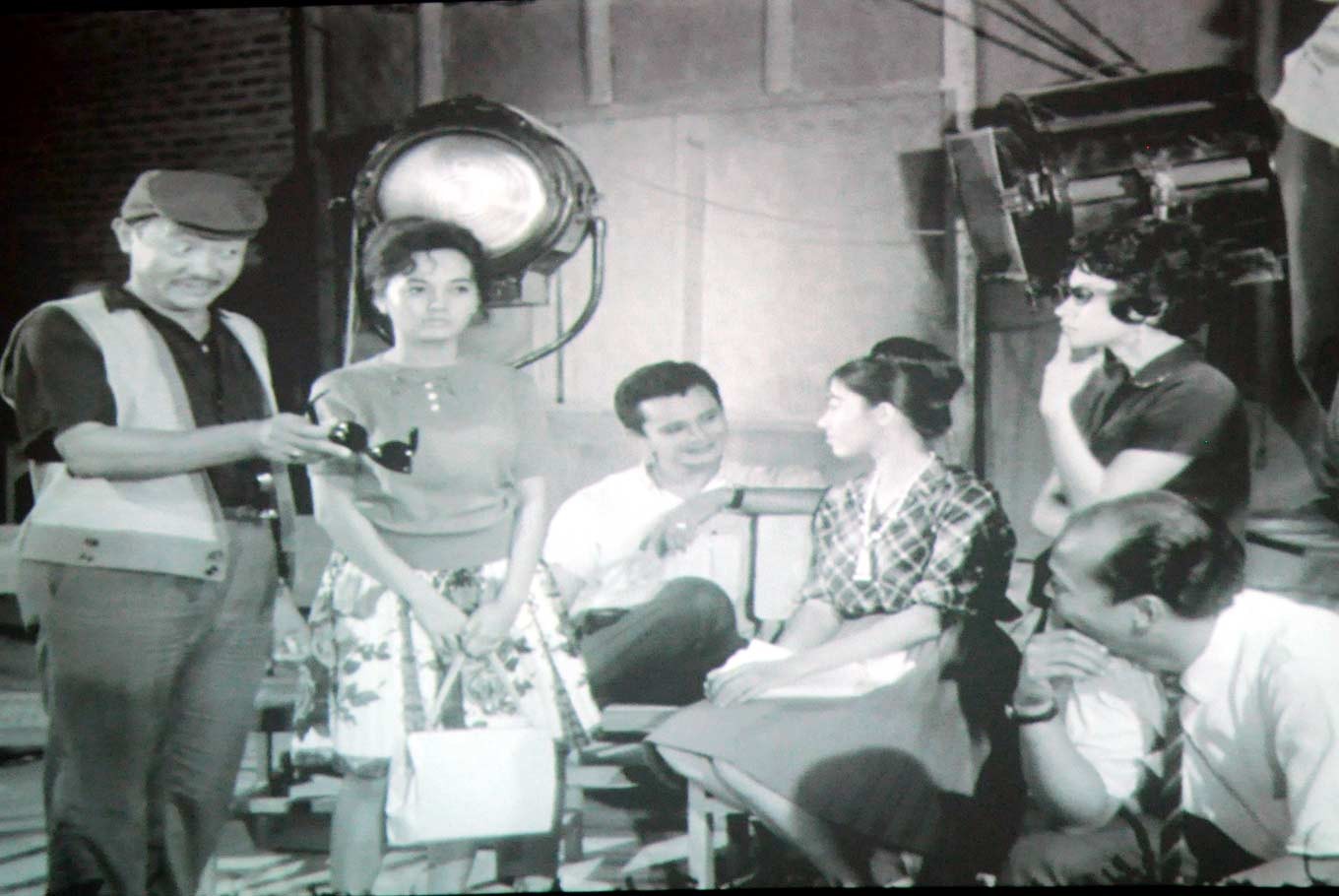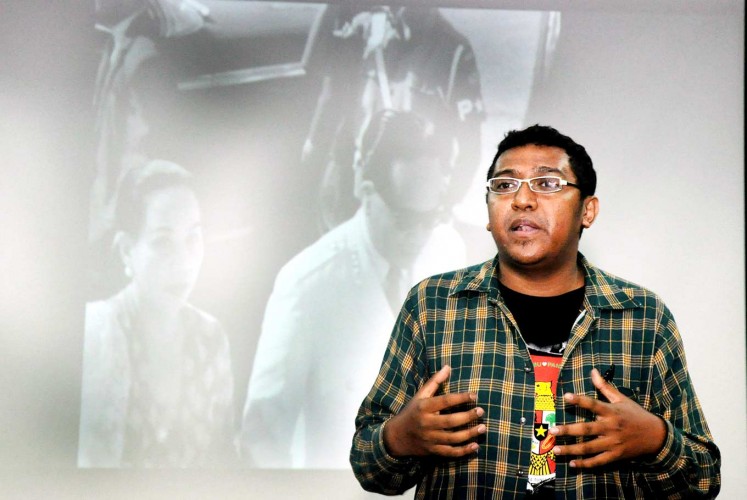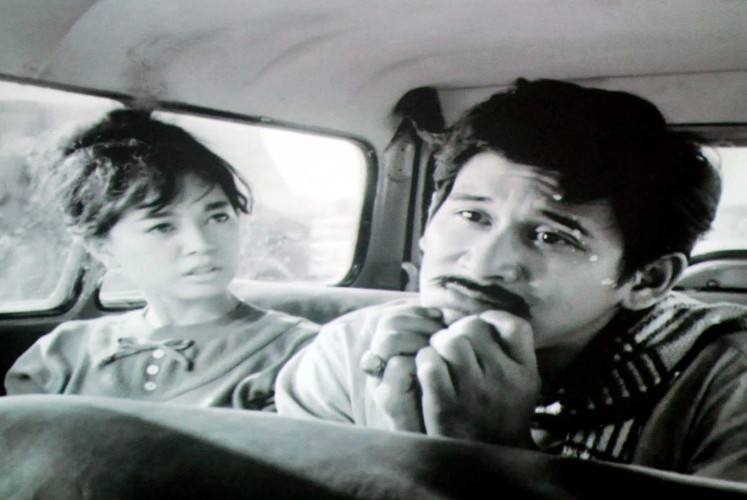Popular Reads
Top Results
Can't find what you're looking for?
View all search resultsPopular Reads
Top Results
Can't find what you're looking for?
View all search results'Liburan Seniman' presents Sukarno spirit in film
Change text size
Gift Premium Articles
to Anyone
T
his historic movie, produced by prominent Indonesian director Usmar Ismail and previously unseen by the public, is now available digitally.
Legendary film director Usmar Ismail was known for his phenomenal work, such as Tiga Dara (Three Sisters) and Lewat Djam Malam (After the Curfew). He was also prolific, having made more than 30 movies from 1949 until his death in 1971.
One of his films, Liburan Seniman (Artists’ Holidays), might be lesser known as it had not been released to the public. It was recently screened in Malang, East Java, where a number of film buffs watched it for the first time.
Based on his own 1944 drama, the film was produced in 1965, a dark year in Indonesia’s history. The 1965 communist purge involved the murder of six high-ranking Army generals followed by the mass killing of hundreds of thousands of sympathizers of the now-defunct Indonesia Communist Party (PKI).
Liburan Seniman featured the 10th anniversary of the Asian-African Conference at Senayan Stadium in Jakarta as its setting. The film is about an author named Suromo (Sukarno M. Noor) who tries to present an artistic creation conveying the message of the people’s suffering on the silver screen, an idea spurred by a speech by former president Sukarno.
Other characters in the film include a painter named Rutaf (Rachmat Hidayat) and a film director named Kadjiman (Menzano). The three meet while collaborating with a Bank Dagang Negara employee, who is also a fighter with an interest in art, played by Aedy Moward.
FX Domini BB Hera, a history researcher from the Brawijaya University in Malang said apart from being played by popular stars, including Tiga Dara‘s Mieke Widjaja, Liburan Seniman is steeped in the spirit of nationalism.
“It presents a period when Indonesia had a deep cosmopolitan ambience, complete with footage from the anniversary of the Asian-African Conference, which imparts the spirit of the event to the present generation,” he said.
The film, with fairly high political leanings, served as Usmar Ismail’s attempt to implement the teachings of Sukarno. Unlike the movie, the play version of the story had been shown to the public several times.
“Following the 1965 upheaval, the movie [fell into obscurity], with minimal data and even no posters, except for only a brief synopsis,” he revealed.
Domini drew attention to a point that maybe the reason why this film had never been accessible to the public.
“There’s footage showing Subandrio, then the deputy prime minister, present at the celebration with a number of foreign delegates,” he said.
Subandrio, also a foreign minister and an influential politician who was close to Sukarno, indeed faced a tragic fate when a year later, he was sentenced to death under the New Order regime. The sentence was eventually reduced to life in prison, and after serving 30 years, he was released in 1995.
“In my view, Liburan Seniman doesn’t literally mean artists’ holidaying for pleasure, but it implies a condition in which an artistic idea has its freedom of manifestation, including the adoption of the message of people’s suffering as its theme,” Domini said.
A conversation: Rachmat Hidayat plays Rutaf in a scene with actress Mila Karmila. (Sinematek/File)Meanwhile, Aji Prasetyo, a member of the Malang chapter of Nahdlatul Ulama’s Indonesian Muslim Artist and Cultural Activist Organization (Lesbumi NU), saw this film as a statement that art could be a response to the nation’s problems.
“Usmar Ismail was formerly the general chairman of Lesbumi, so his work proved that at that time not only the [left-wing] People’s Cultural Institute [Lekra] had a revolutionary concept,” he said.
Aji added that the movie was considered potentially dangerous by certain parties as it encouraged many countries to free themselves of colonization.
He described Sukarno as being fully aware that art could be utilized as a means to achieve national aspirations due to its effect on the public mindset.
European flavor: The film has many Western touches, such as the poster of a German automobile in the background. (Sinematek/File)“The triumph of art and culture will be followed by victory in politics, economics and other areas,” stressed Aji.
Sadly, however, the film ended after 110 minutes and without end credits, leaving its ending unclear. According to Subi, a preserver from the Indonesian Film Center Foundation, the abrupt ending was because Sinematek, an institute that archives Indonesian films, could not locate the final reel of the movie.
“Moreover, the film was found edited in its original negative rather than its positive, so the question remains whether or not [the final cut] had ever been circulated,” Subi said.
Subi’s foundation has the mission of preserving Indonesia’s audiovisual heritage and providing public access to them. This film is only one of hundreds of documentaries already stored digitally for easy access.
Subi said the film has succeeded in representing some important elements of Indonesia’s situation, especially in the film industry and economic sector. He hoped such films could reach broader audiences and encourage discussions from different perspectives.














